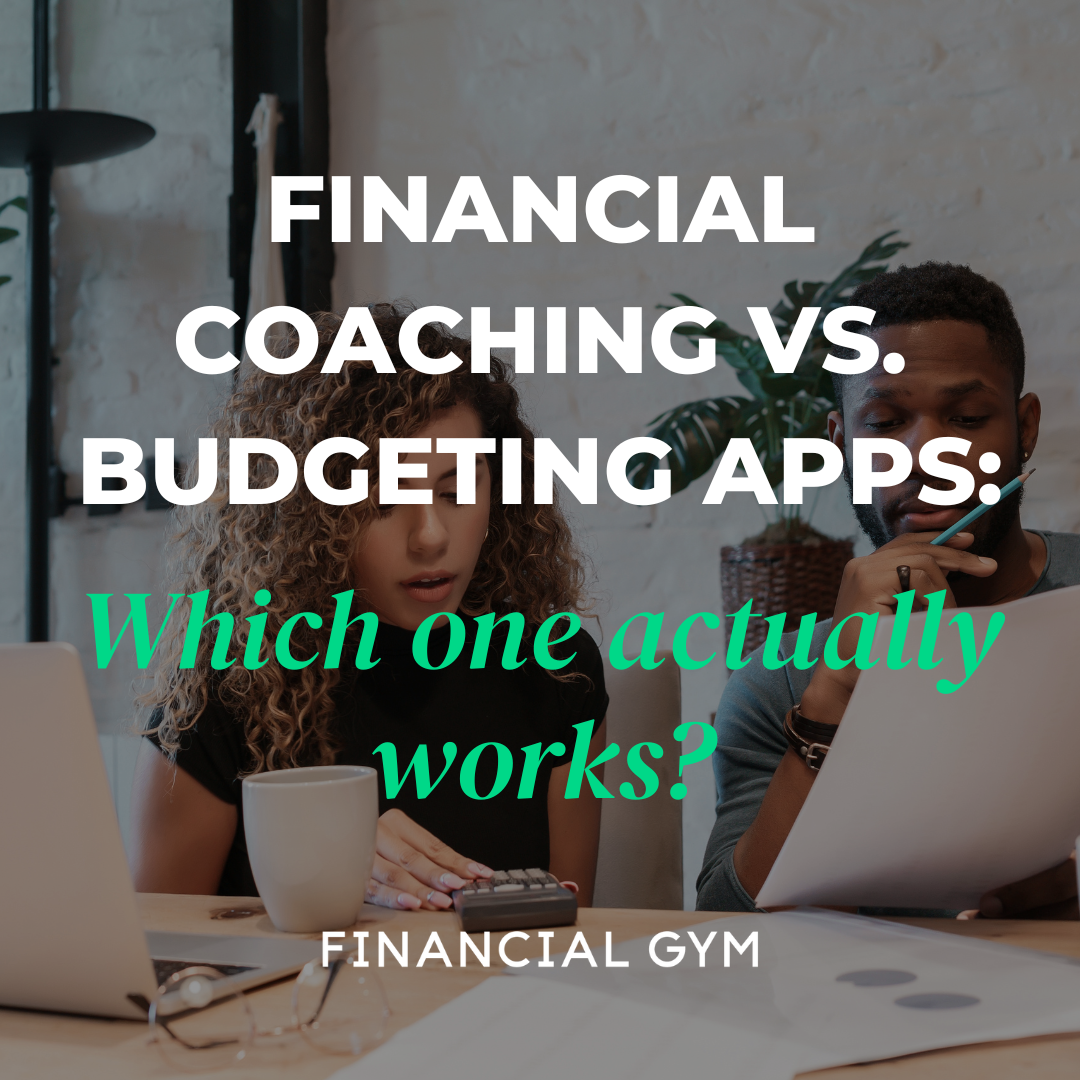The Financially Free Blog
Financial Coaching vs. Budgeting Apps: Which One Actually Works?
You’ve decided to take control of your finances and know you need help, but where do you start? Both financial coaching and budgeting apps offer ways to help you gain control of your money, but they differ in their level of support. Budgeting apps are a convenient way to track your spending and plan for the short term while a financial coach goes deeper to address mindset shifts, behavior changes, and personalized strategies for long-term financial success.
How Do I Stick To My Variable Budget? 15 Proven Strategies
Do you have a hard time sticking to your variable expense budget?
If so, you’re not alone. This is one of our most frequently asked questions because it’s one of the things people struggle with the most.
It’s actually quite easy to blow your variable budget every month when you’re not paying attention to the small, daily spending habits that add up over time.
Side Hustles From Home: How to Earn Extra Money
There is no doubt that life is expensive right now and side hustles are a popular option to ease the financial squeeze—nearly half of working Americans (45%) currently have a side hustle. Whether you’re just trying to make ends meet or stash some extra cash to cover your wants rather than just your needs, a side hustle can help fill the gap. These days, with RTO mandates and busy calendars, you might be hesitant to add another commitment that takes you away from home. Luckily, there are side hustles you can do without stepping foot out your front door.
What To Do After A Natural Disaster
This comprehensive guide brings together the most important resources to help you and your loved ones recover and rebuild. From immediate shelter assistance and financial relief to navigating insurance claims and accessing government support, we've organized critical information to help you take action when you need it most.
Laid Off? What To Do When You Get Laid Off
With economic uncertainty and corporate restructuring becoming increasingly common, more workers are facing this difficult situation. While it may feel like your financial world is crumbling, having a strategic plan can help you navigate this transition with confidence and resilience.
CFPB Under Threat: How DOGE Budget Cuts Could Impact Your Finances and Consumer Protection Rights
The Consumer Financial Protection Bureau (CFPB) has been effectively suspended after acting director Russ Vought ordered all employees to cease activities. This move follows public statements by Elon Musk calling for the elimination of the agency. The CFPB, created after the 2008 financial crisis, has returned over $21 billion to consumers and provided crucial financial protections. Without it, Americans face reduced consumer protections, less regulation of data brokers, and decreased accountability for financial institutions. Learn what steps you can take to protect your finances and consumer rights during this uncertain time.
Message From The CEO: DEI is Alive and Well at The Financial Gym
In the last few weeks, we’ve watched a number of companies publicly walk back and remove Diversity, Equity, and Inclusion (DEI) teams, practices, and procedures. While I can’t guarantee many things in life, I can guarantee as long as I am CEO and/or running Financial Gym and FG Advisory Services, DEI will not only remain a core practice of our company, but it will also remain one of our core values.
7 Days of Financial Revolution
7 days of small actions you can take to save money and participate in financial activism.
With the increase in the frequency and severity of climate crises, it’s never been more important to vote with your dollar and make sure your spending aligns with your values, especially when it comes to giving money to companies who are actively harming the environment.
How Much to Give For Holiday Bonuses
With the holiday season right around the corner, employers are starting to think about ways to reward their teams with holiday parties, surprise gifts, and highly anticipated holiday bonuses. But employers aren’t the only ones who can show appreciation during the season of giving.
It’s the perfect time for you to reward all the hardworking people who provide you services year-round. It can be quite tricky, however, to figure out just how much is considered an appropriate bonus. Read on for a list of the 10 people to keep in mind for a holiday bonus.
How to Give Gifts Without Going Broke
Some people love giving gifts, but giving indiscriminately can interrupt the giver’s own financial progress. When gift-giving is a strong part of your identity, that is likely reflected in your spending. If you start to feel like your tendency to give gifts is holding you back financially, it’s time to re-examine how exactly you are expressing your love through gifts and how you can prioritize your own financial health along with making your friends and family happy.
How to Donate for #GivingTuesday While Paying Off Debt
The desire to give can be very strong during the holiday season. With multiple causes that are near to your heart, you may want to put aside some cash for charitable giving. One of the easiest ways to do this is to participate in this year’s #GivingTuesday campaign today.
3 Ways to Practice Gratitude this Holiday Season
As the holiday season kicks off tomorrow (Happy Thanksgiving!) we just wanted to remind everyone that there are always ways to practice gratitude (even during the crazy, tumultuous year that we have had!).
What Type of Money Avoider Are You?
Money avoidance is a common problem, especially among the younger generations—according to a Discover survey, 41% of Gen Z and 27% of Millennials avoid looking at their bank account balances. This reaction is natural, but allowing it to go unaddressed can worsen the problem. Luckily, there are ways to break this cycle, and understanding why you avoid money and what type of money avoider you are can help.
How to Host a Friendsgiving or Thanksgiving on a Budget
Whether you’re hosting a big family Thanksgiving or an intimate Friendsgiving, it can be one of the most expensive dinners of the year. The cost can quickly add up as you ring up ingredients for the appetizers, sides, desserts, and turkey — not to mention dinnerware for the table setting and any other festive decor to make the celebration memorable.
With the right plan, however, you can host Thanksgiving on a budget that’s sure to impress your friends and family.
What Is a Tariff? And How Could Trump’s Tariff Plan Affect You?
Post-election, the word “tariff” has entered our daily lexicon. We have politics to thank for that—according to the Tax Foundation, President-elect Trump has promised a 10-20% tariff on all imports, a tariff of at least 60% on Chinese imports, and a 25-100% tariff on Mexican imports.
How to Avoid 6 Major Retirement Mistakes
Not everyone has the time or inclination to get into the weeds of retirement planning. There are so many types of accounts, changing contribution limits, and odd regulations—seriously, there are a lot of weird retirement rules. The good news is that by avoiding a few major mistakes, you’ve done 90% of the work to optimize your retirement.
4 Myths You're Telling Yourself About Your Finances
Finances are among the leading stressors of modern-day life so it's important to get a clear understanding of how it guides our decisions. You may have been telling yourself the same scripts about your capabilities when it comes to your finances. The thing is — these beliefs may not be reality. Here are a few common money myths people tell themselves.
6 Ways to Get Control of Your Spending
One common theme we hear from clients is that they don’t know where their money is going or don’t feel in control of their spending. Luckily, this is a solvable problem! Here are six ways to gain control of your spending.




















